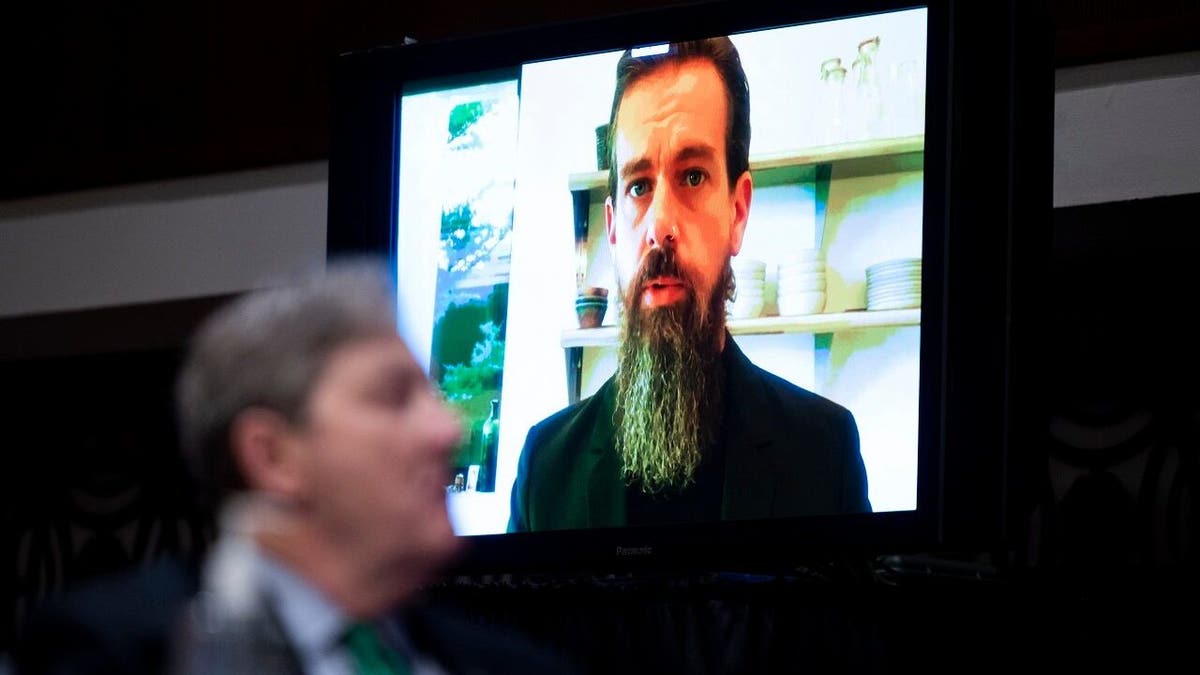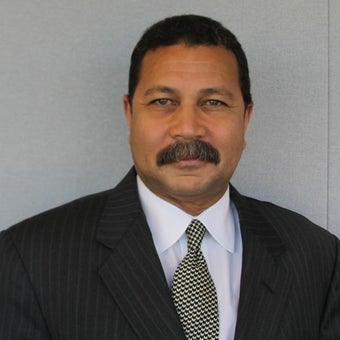Facebook, Twitter executives grilled during Judiciary committee hearing
Fox News correspondent Gillian Turner joins 'Special Report' with the latest.
America paid attention on Tuesday as Twitter CEO Jack Dorsey and Facebook CEO Mark Zuckerberg both appeared before the Senate Judiciary Committee for a hearing on "Breaking the News: Censorship, Suppression, and the 2020 Election."
In a full committee hearing long-awaited by both Republicans and Democrats, the two tech leaders were challenged to explain their policies on content moderation and the decision to quash a report by the New York Post on Hunter Biden just weeks before the 2020 presidential election.
Testifying remotely, Dorsey and Zuckerberg admitted to making mistakes and pointed to their remedial effort to undo the snap decision to censor the New York Post. With those admissions, the two tech CEOs provided a revealing look into how they hope to change the narrative going forward.
The only problem is that many senators, from both sides of the aisle, are not convinced that either Facebook or Twitter is prepared to make the necessary changes needed to avoid regulation.
DAN GAINOR: TWITTER, FACEBOOK WERE A BIG PART OF TAKEDOWN EFFORTS AGAINST TRUMP IN 2020 ELECTION
Here are 7 top takeaways from Tuesday's hearing.
1. Social Media Giants Wield Great Electoral Power
Both Twitter and Facebook wield outsized power and influence in the United States, especially when it comes to our national elections.
Twitter has gone from being a novel curiosity in 2006 to an indispensable element of free speech, democracy and human expression in 2020. It has over 330 million monthly active users and over 145 million daily active users. The social media giant counts President Trump as one of its most prominent and prodigious users, if not always its most prolific.
In fact, it has been the president’s adept use of Twitter to communicate directly with Americans and Twitter’s policies labeling and restricting the president’s tweets, that had it front and center before the United States Senate.

Twitter CEO Jack Dorsey testifies remotely during a Senate Judiciary Committee hearing on Facebook and Twitter's actions around the closely contested election on Tuesday, Nov. 17, 2020, in Washington.. (Bill Clark/Pool via AP)
That, and the company’s decision to initially suppress the New York Post's story on Hunter Biden. Even though Twitter's CEO admits “we made a mistake," the company's decision points out just how powerful the medium has become in the freedom of expression debate.
With over 140 million people visiting the Voting Information Center on Facebook and Instagram since it launched, and over 33 million on election day alone, Facebook CEO Mark Zuckerberg says the company helped 4.5 million people to register to vote. In testimony before the Senate Judiciary Committee on November 17, Zuckerberg said Facebook set out to run “the largest voting information campaign in American history.”
2. Content Moderation Rules Are Flawed
Both Twitter and Facebook launched policies to help them protect the integrity of the election. Twitter’s “civic integrity policy” allowed it to label or remove false and misleading information, along with content that would intimidate or dissuade people from participating, sow confusion about the laws and regulations, undermine public confidence in the election and would be otherwise harmful. Twitter labeled over 300,000 tweets under this policy, with 456 of those tweets containing a warning message.
In their quest to “tackle misinformation and voter suppression,” Facebook partnered with election officials to remove false claims and displayed warnings on over 150 million pieces of content that were reviewed by “independent third-party fact-checkers.”
Of course, this begs the question: who are these independents, what are their affiliations and biases, and how do we know they are being fair?
In short, where is the transparency, which could have helped Facebook credibly explain its decision to limit the reach of the New York Post story on alleged emails and photos from Hunter Biden’s laptop?
The company’s one-size-fits-all content moderation policy has proven woefully inadequate to address the complexities of such a highly-charged matter.
It also begs the question of how the policy gets decided and enforced at all.
In addition, Facebook implemented “policies prohibiting explicit or implicit misrepresentations about how or when to vote as well as attempts to use threats related to COVID-19 to scare people into not voting,” according to Zuckerberg’s testimony.
As the votes were being counted, Facebook “added labels to posts about voting by candidates from both parties to direct people to reliable information.” The company attached informational labels to content that “sought to delegitimize the outcome of the election.” And it strengthened its enforcement against “militias, conspiracy networks, and other groups” in an effort to stop them from using the platform “to organize violence or civil unrest in the period after the election.”
3. Influence Extends Beyond Elections into Our Lives
These policies and practices reveal what we all have come to know but are slow to admit. For better or worse, social media exerts an outsized – and arguably dangerous-- influence over American society in ways previously unimaginable.
Facebook, Inc is much more than a social network. With WhatsApp, Instagram, Messenger and the Facebook social media platform, the company owns four of the world’s largest social media / messaging services.
Facebook and WhatsApp alone are used by a combined 4.5 billion people per month, eclipsing their closest competitor, YouTube.
CLICK HERE TO GET THE OPINION NEWSLETTER
For a company that began in a college dorm as a way to connect college students with one another, Facebook, for example, has grown to leviathan proportions.
4. Social Media Giants Are Hurting Local Media
This dominance extends well beyond social media and now permeates local communities as evidenced by the advertising market. With hundreds of millions of users, Facebook (and others) have reaped enormous profit from social media advertising – a global market expected to surpass $98 billion in 2020 alone.
We know that Facebook and Google have contributed to the decline of local newspaper and television journalism. A recent report notes that “Google and Facebook together account for 60% of digital ad revenue and Amazon and a few other companies account for 15%. This leaves only 25% of available ad revenue for the [local] news outlets.
In fact, a recent Senate report led by Sen. Maria Cantwell, D-Wash., concluded that: “Local news has been hijacked by a few large news aggregation platforms, most notably Google and Facebook, which have become the dominant players in online advertising. These trillion-dollar companies scrape local news content and data for their own sites and leverage their market dominance to force local news to accept little to no compensation for their intellectual property.”
5. Section 230 Needs to be Reformed
Both Facebook and Twitter CEOs have acknowledged the need for the reform of Section 230 of the Communications Act in one form or another.
Simply put, 47 U.S. Code Section 230 states: “No provider or user of an interactive computer service shall be treated as the publisher or speaker of any information provided by another information content provider.” And “No provider or user of an interactive computer service shall be held liable on account of any action voluntarily taken in good faith to restrict access to or availability of material that the provider or user considers to be obscene, lewd, lascivious, filthy, excessively violent, harassing, or otherwise objectionable, whether or not such material is constitutionally protected.”
More from Opinion
The law was Congress’ response to two separate cases in the 1990s that reached conflicting decisions—one holding the Internet service harmless for libelous content, and the other holding the Internet service liable for content that it moderated.
Section 230 was intended to “encourage the unfettered and unregulated development of free speech on the Internet” according to one judge and to allow Internet services to develop their own standards for enforcing content moderation—all aimed at thwarting frivolous litigation.
6. Self-Regulation is Necessary but Not Sufficient
Dorsey and Zuckerberg similarly agree with the sentiments of Senate Judiciary Committee Chairman Lindsey Graham, R-S.C., and Ranking Democrat Richard Blumenthal, D-Conn., that government should not be in the business of regulating content.
Graham, in fact, is pushing the industry to promote its own best business practices and perhaps implement a self-regulatory mechanism.
That, of course, would be a starting point for the necessary dialogue that must take place between the tech industry and Congress. But the process has to go beyond words. With the prospect of a divided Congress, Big Tech firms can skillfully move around the margins, making few concessions and leaving little progress.
7. Transparency and a Level Playing Field Are Badly Needed
There is a uniform call for transparency on how these powerful social media companies make important decisions to permit or deny content on their platforms, especially when it comes to algorithms, artificial intelligence, and human interactions as well.
Both Democratic and Republican lawmakers further expect Facebook and Twitter to disclose the internal corporate dynamics that impinge on elections and political speech.
Beyond that, other business sectors demand and deserve a level regulatory playing field. Local news outlets, newspapers, broadcasters and other content providers are subject to robust federal regulation. But Facebook, Twitter, Google, Amazon and other tech firms face no such regulation, and worse, have a free pass under current law. It is a pass that allows Big Tech firms to get bigger, richer and more powerful and thereby dissolve the revenue base for smaller legacy competitors.
So far, Congress and the Executive Branch have made limited progress in resolving these problems.
CLICK HERE TO GET THE FOX NEWS APP
The new expectation is that a Biden administration will somehow fare better, which may be wishful thinking.
Although Big Tech has been facile in avoiding regulation for many years, its days of avoiding the Congressional spotlight are clearly over. And, as one expert pointed out, the bloom is off the rose.


